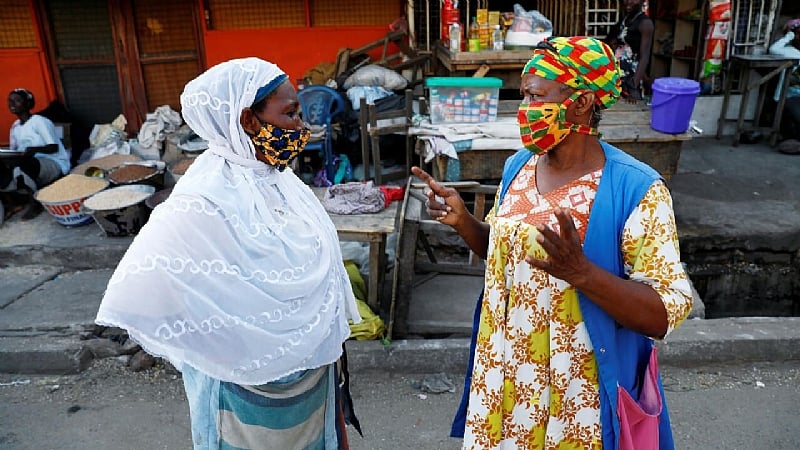The Ghana Health Service (GHS) has issued a public health advisory in response to a recent resurgence of COVID-19 cases, primarily concentrated within the University of Ghana community. While the World Health Organization (WHO) has declared the end of the global health emergency status for COVID-19, the GHS emphasizes that the virus continues to pose a threat, with seasonal outbreaks anticipated worldwide. This renewed vigilance comes after a period of sustained decline in COVID-19 cases in Ghana, which had lasted for over a year. The recent uptick, localized within the university, necessitates proactive measures to prevent wider community spread.
The GHS is working closely with University of Ghana authorities to implement containment strategies and adapt responses as the situation evolves. The collaborative approach aims to limit transmission within the campus and prevent spillover into surrounding communities. While the reported cases have presented with mild symptoms and no hospitalizations have been required, the GHS urges continued caution and adherence to preventive measures. This underscores the importance of individual responsibility in maintaining public health, even as the severity of cases appears less pronounced.
The resurgence serves as a timely reminder that COVID-19, though no longer a global emergency, remains a public health concern. The virus’s ability to resurge in localized outbreaks necessitates continued monitoring and preparedness. The GHS is committed to maintaining surveillance and responding promptly to any new developments, emphasizing the importance of public cooperation in adhering to preventive measures. The prompt identification and localized containment of the outbreak at the University of Ghana demonstrates the effectiveness of ongoing surveillance efforts.
The key preventive measures highlighted by the GHS echo the familiar advice promoted throughout the pandemic. These include maintaining social distancing, especially in crowded settings; wearing masks in enclosed spaces, which reduces the risk of airborne transmission; frequent handwashing with soap and water or using hand sanitizer, a crucial step in disrupting viral spread; avoiding large gatherings where close contact increases transmission risk; and staying home when feeling unwell, a fundamental measure to prevent the spread of illness. These simple yet effective practices remain crucial in preventing both individual infection and wider community transmission.
The University of Ghana has taken swift action in response to the outbreak, demonstrating its commitment to the safety and well-being of its students and staff. The Dean of Students, Rosina I. Kyeremateng, issued a statement on June 25th suspending all social gatherings on campus. This proactive measure aims to limit close contact between individuals, thus reducing the opportunities for viral transmission. The university’s decision underscores the importance of swift and decisive action in containing outbreaks and protecting the campus community.
The combined efforts of the GHS and the University of Ghana exemplify a proactive approach to managing the ongoing threat of COVID-19. While the WHO’s declaration marks a significant milestone in the global fight against the pandemic, the recent resurgence underscores the need for sustained vigilance and preparedness. The emphasis on preventive measures, coupled with rapid response and containment strategies, provides a framework for navigating the evolving landscape of COVID-19 and mitigating its impact on public health. The situation at the University of Ghana serves as a valuable case study in managing localized outbreaks and highlights the importance of collaboration between health authorities and institutions in containing viral spread and safeguarding public health. The ongoing monitoring and adherence to preventive measures remain crucial in navigating the persistent threat of COVID-19 and protecting communities from future outbreaks.














